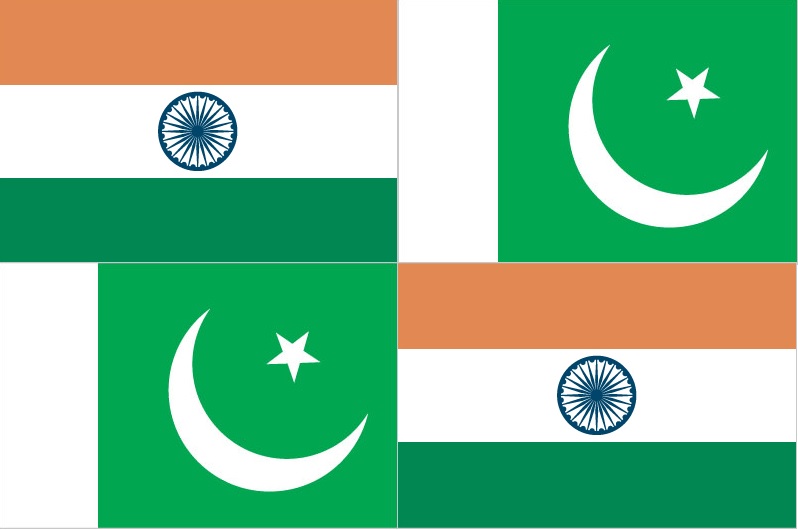
Hudson Institute scholar Aparna Pande speaks about the volatile situation in South Asia.
Tensions are high in South Asia, with India and Pakistan engaging in tit-for-tat aerial attacks across the Line of Control. A day after India claimed to have struck down a terror camp in Pakistan, on Wednesday, Islamabad claimed that it has shot down two Indian military jets. Pakistan has captured an Indian pilot apparently in its territory.
The American Bazaar spoke to Aparna Pande, Director of the Washington, DC,- based Hudson Institute’s Initiative on the Future of India and South Asia, on what should be the next steps for India and Pakistan to follow to diffuse the volatile situation.
Pande, who also serves as a Fellow, Center on Islam, Democracy, and the Future of the Muslim World, did her PhD dissertation on Pakistan’s foreign policy. She is the author of two successful books Explaining Pakistan’s Foreign Policy: Escaping India and From Chanakya to Modi: Evolution of India’s Foreign Policy.

Q: In your opinion, what are the urgent steps that India and Pakistan need to take?
In my opinion, there is a need for de-escalation. The long-term issues between India and Pakistan will remain – Kashmir, terrorism, and others – but neither country benefits from going down the path of war – either a Kargil-like conflict or a full-fledged war that has the potential to turn nuclear. Balakot air strikes were India’s response to the Pulwama terror attack. Prime Minister [Narendra] Modi called upon his Pakistani counterpart to act against terrorists and fight poverty together. Prime Minister Khan’s speech today was measured. The next steps should be Pakistan returning the Indian Air Force pilot and the two sides slowly returning to diplomatic measures. Pakistan needs to act against all terror groups on its soil and India’s better option is to leverage the international community to apply pressure on Pakistan.
With both countries possessing more than 100 nuclear warheads each, it is a very sensitive situation. In times such as these, how should the Indian government ensure that things do not go out of hand?
India’s airstrikes have demonstrated that India’s strategic restraint over the last few decades may be changing and New Delhi is willing to move out of what used to be its comfort zone. What is not immediately clear is how far India is willing to go down the escalatory ladder and how far Delhi has war gamed the situation.
ALSO READ: Indian foreign policy has moral dimension, Chanakyan realpolitik: Author Aparna Pande (July 18, 2017)
The right to defend and protect yourself is understood by countries around the world. As of now most countries around the world have been sympathetic to India facing terrorist attacks over the decades. However, no country – whether in South Asia or outside the region – would like a war or a potential nuclear conflict. It is difficult to gauge how the conflict will play out so it is often better to restrain when one has the opportunity to do so than to allow things to go out of control. If this becomes a full-blown conflict then it will be difficult to game out how each country will respond especially countries like China.
I believe India should behave like the mature, global power to be and exercise restraint. India has tremendous goodwill and a moral upper hand in the eyes of the global community. We need to ensure that we retain this goodwill and support. India also needs to focus its attention on the rise of China and the challenge that poses for which India’s attention should be on building its economy and its defense. War does not benefit India and will only hamper India’s desire to build itself economically and militarily. Instead any conflict or war with Pakistan helps Chinese aims.
Do you think that Pakistan has adopted a diplomatic course to address the situation? Pakistani Prime Minister Imran Khan has appealed to talk with India to avoid a war. What do you think should be the response from Prime Minister Modi?
The underlying issue is one of terrorism and till the time Pakistan acts against all terrorist groups and eliminates them from its territory, there will continue to be attacks both within Pakistan as well as in all its neighbors. The Pulwama terror attack led India to undertake for the first time since 1971 air strikes inside Pakistani territory against terror camps. This resulted in a Pakistani response that has the potential of escalating to a conflict which may lead to a bigger war.
Mr Imran Khan’s speech appealing for avoiding war is a good start and so is the treatment of the captured Indian Air Force pilot. India has also handed over a dossier to Pakistan on the Pulwama attack.
For the two countries to avoid an escalation they would need to go down the diplomatic path which would mean a Pakistani response to the Indian dossier which is more than the usual dismissive response that past dossiers received. The IAF pilot who has been captured should also be treated properly and then handed back to India. Finally, Pakistan must ensure that no terror attack takes place inside India.
If this happens, then Mr Modi, who faces an election in a few months, will be able to tell his domestic audience that his policy has resulted in Pakistan taking action and that it is now time for India, as the mature power, to de-escalate.
I do not believe either country wants to go to war, especially one that may turn nuclear. However, as we all know one can never game such a situation.
In the past the United States has played a diplomatic role in diffusing tensions between the two countries. Do you see the United States, under Trump, playing a similar role?
I think it is a combination of factors we see today. One, India-US relationship is deeper today than it has been in past crises (even Mumbai). The two are closer on how both perceive Pakistan and the Pakistan-US relationship today isn’t what it was even a few years ago. Second, the US has been pressuring Pakistan to act against jihadi groups for some years now and that pressure has deepened under this administration. The strong White House statement soon after Pulwama shows that. Third, every country has the right of self defense and not only the US but almost every country around the world has condemned the Pulwama attacks and asked Pakistan to act against jihadi groups and not really said much about the India air strike aside from asking both countries to restrain and avoid war. Finally, it may be useful for India and Pakistan to learn to solve their problems themselves and for the US to keep a distance.




1 Comment
Many things this lady has said that are similar to Nehruvian sweet and sophisticated chocolates, without any beef but only vegetables here and there.
Why this problem between Pakistan and India? Who is really the culprit for cleating it? And how to solve it? No hint!
Pakistan is rogue state no doubt about it. But bad relation with India is 100% Indian systematic disregard of The Indian Independence Act 1947 by which India and Pakistan were created. Then occupation of Kashmir is the ultimate robbery by the Republic of India. She has no right to do that against Pakistan’s objection and most importantly, by disregarding the wish of the Kashmiri people. Under this scenario, India promised plebiscite in Nov 1947 twice but never kept it and played hegemony. How many Kashmiri people India has killed, mutilated and blinded since 1947? And what is their crime? Is it not that they want “Freedom” and self-determination? You can’t keep people under bondage forever and terrorism would continue until you address the cause for it. It is sad that Indians are emotional about Kashmir and terrorism but alas, have they done nothing to bring peace until today? Fair play and justice is the only way to solve Kashmir problem and thereby peace between India and Pakistan and in the whole sub-continent.
Let us not be pro-Pakistan or pro-India but for justice, fair play and pro-Kashmiri. Let Kashmiri people decide their future.